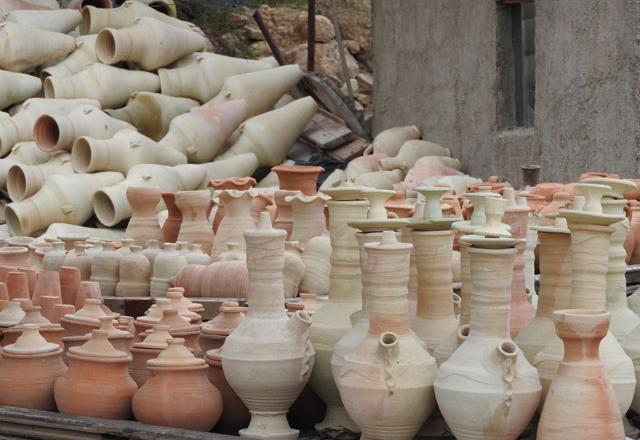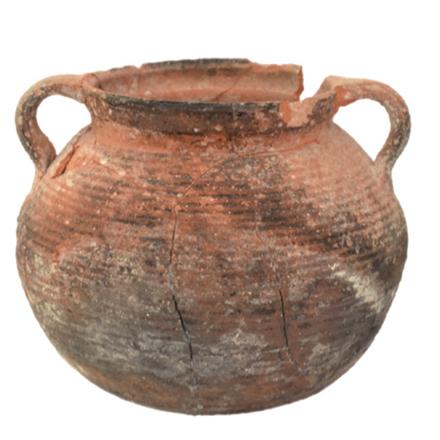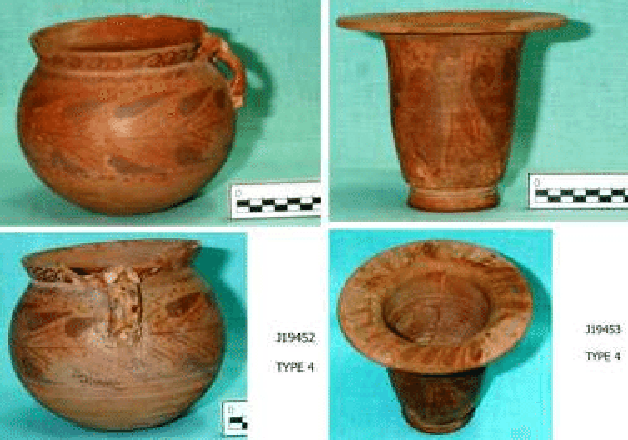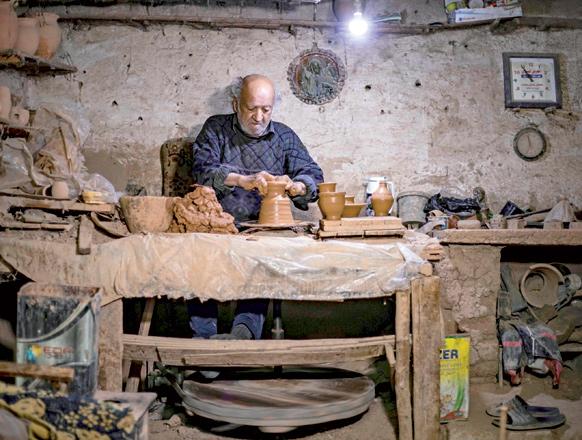You are here
Age-old pottery craft still exists on Amman-Jerash highway
By Ahmed Bani Mustafa - Feb 15,2018 - Last updated at Feb 16,2018

Claywares are on display on roadside of Amman-Jerash Highway (Photo by Ahmed Bani Mustafa)
JERASH — As one of the oldest crafts in Jordan, pottery still exists on the side road of Jerash-Amman highway as a family-inherited business.
Mohammad Quraan, owner of a pottery shop, is among those who inherited the profession from his father. "My grandfather started this business in the early 1970s at this very spot when this highway was still a narrow road," Quraan told The Jordan Times.
The potter handles the whole process starting with the collection of raw material, manufacturing, up to showcasing the products at his shop.
"A certain kind of soft rock, sandstone, red soil and salt are all the ingredients we need," Quraan explained, noting that he still uses almost the same methods and materials as ancient potters.
After mixing the ingredients and having them ready to shape, Quraan uses the traditional pottery wheel with which he manually shapes his jars and pots.
For burning, he uses a traditional kiln fuelled by gas instead of wood and other materials in order to reduce the amount of smoke produced.
Quraan said people buy the products for water storage, cooking or decoration. "I have loyal clients from Jordan and other countries, especially in the Gulf region," he said.
"Storing water or cooking in a pottery pot is much healthier," the potter claimed, stressing that it does not contain the harmful chemicals found in other storing tools such as plastic and steel.
Shatha Hatameh, a dietitian, agreed, confirming that clay is much healthier than plastic. "It provides moderate temperature for water as clay is porous and allows a mechanism of natural cooling ideally moderate," she told The Jordan Times.
"There is no doubt that pottery jugs are safer. However, there is a lack of scientific studies on the topic," the nutritionist said.
"All agree that previous generations were healthier, obviously for being closer to nature, for example by using such houseware," Hatamleh said.
Related Articles
AMMAN — Though common ware pottery have been found in great number at classical excavations throughout the world, little attention has hithe
AMMAN — Scholars have no evidence of a pottery workshop at the Nabataean settlement of Mudayna Thamad, although they found many pottery piec
QAMISHLI, Syria (AFP) Inside a dusty and dark workshop on the banks of the Jaghjagh River in northeast Syria, Misak Antranik Petros uses an














